So… If Israel commits to a two-state solution then UK won’t recognise the state of Palestine in effect giving Israel free hand not to commit to a two-state solution… Am I reading this right or do I just lack reading comprehension?
Red_Scare [he/him]
- 9 Posts
- 75 Comments
Why is there even “unless” there? Is UK not going to recognise the state of Palestine if Israel does agree to the two state solution?
I bet “unless” is just a way to back out, later when Israel agrees to ceasefire, Kid Starver will say the process is ongoing but taking longer than anticipated, then Israel will break the “ceasefire” the very same day, and it will all fizzle out and end with nothing, as it did with absolutely every Starver’s promise.
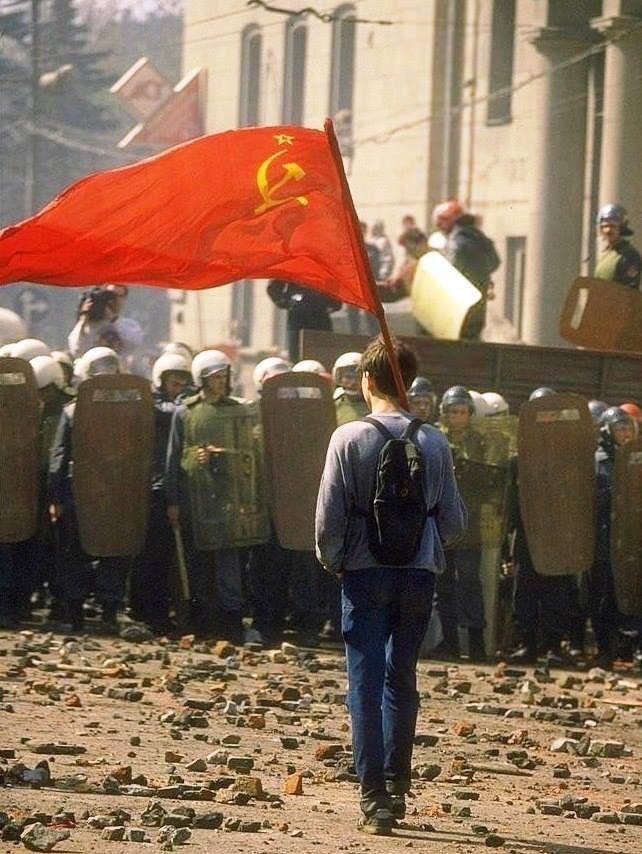
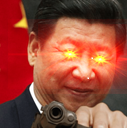 4·6 days ago
4·6 days agoGreat points! Aside from what you and comrades loathsome dongeater and thedarkernations said, I’ve also been thinking about Smiths assertion that the fall of the USSR, DDR, Yugoslavia, Afghanistan, and the entire Eastern Bloc was not a victory for imperialists but actually weakened imperialism, and the only reason we see the very opposite in reality around us is that we lack “revolutionary leaders of the caliber of Lenin, Che, Fidel, Grenada’s Maurice Bishop, Thomas Sankara of Burkina Faso and others, and political movements inspired by them, able to take advantage of the imperialists’ growing weakness and disarray.”
This hinges on the great man theory. There are in fact plenty of talented and charismatic organisers throughout the global South and beyond and when the material conditions are right there will be no shortage of people perfectly capable of taking the lead. There’s never a shortage of leaders, what’s lacking is conditions under which the overthrow of imperialism is possible. I think it’s blatantly clear the conditions for fighting imperialism are more difficult now than they were when the Eastern Bloc was strong, as it’s clear that the recent advances in Burkina Faso and elsewhere wouldn’t be possible without China and it’s allies weakening western imperialist powers.

 3·7 days ago
3·7 days agoHe’s argument is actually quite different though, he expands on this in part 2 of the interview:
An almost impenetrable thicket of myths and falsehoods surrounds the so-called Cold War, which was anything but cold for the billions of people who live in Africa, Asia and Latin America. The dominant narrative is that the war was between the “West”, led by the United States, which was trying to spread capitalism and democracy, and the “East” led by the Soviet Union, which was trying to spread socialism and communism. It is absurd to claim that the installation by the USA and its allies of countless bloodthirsty dictators from the Shah to Saddam to Somoza had anything to do with “spreading democracy”, but the first part of the dominant narrative is correct: the USA and its imperialist allies were indeed fighting a war to spread capitalism and crush any resistance to it. What is false is that the Soviet Union was trying to spread socialism and communism. On the contrary, time and again the fake revolutionaries who ruled the USSR provided crucial assistance to the imperialists. The Stalinist “stages” theory of history held that anti-capitalist revolutions were impossible in nations oppressed by imperialism — because the working class was too small and weak and because the task of the day was to abolish feudal and other pre-capitalist obstacles to the spread of capitalism — and its proponents argued that a protracted period of capitalist development was necessary before class contradictions in these nations could come to approximate those in the imperialist nations, and only then could the struggle for socialism could be put on the agenda. So, instead of leading struggles to bring revolutionary governments of workers and farmers to power, Moscow instructed the communist parties under its control to become junior partners in alliances with the supposedly progressive wing of the national bourgeoisie, leading to countless catastrophic defeats, Iran in 1953 and Indonesia in 1965 being two major examples. As Che Guevara said, “the indigenous bourgeoisies have lost all capacity to oppose imperialism — if they ever had any…. There are no other alternatives. Either a socialist revolution or a caricature of a revolution.”
It is notable that the only revolutionary victories during the so-called Cold War occurred under the leadership of communist parties that had broken at least partially from subservience to Moscow (Yugoslavia, China, Korea, Vietnam), or of revolutionary movements and parties that had never been in Moscow’s orbit in the first place (e.g. Cuba, Nicaragua, Algeria). Perhaps the most instructive example is that of Vietnam. At the Potsdam Conference in July 1945, the victors — Truman, Churchill (assisted by Labour Party leader Clement Attlee, whose election as Prime Minister of Britain was confirmed mid-conference) and Stalin, met to share out the spoils of victory. Hoping to continue the USSR’s wartime alliance with the supposed to be the antifascist, progressive wing of imperialism, Stalin agreed that France’s Indochinese colonies should be returned to their rightful owner, namely France.
In defiance of this, on September 2 1945, before half a million people gathered in Hanoi, Ho Chi Minh proclaimed an independent Democratic Republic of Vietnam — but nothing was done to prepare an appropriate welcome for imperialist troops (including 20,000 soldiers of the 20th Indian Division, part of the Indian army under Britain’s colonial command) sent to enforce the nefarious decision taken at Potsdam. Instead, acting under Moscow’s orders, the ICP leadership greeted the first contingents of British troops to arrive (on 12-13 September) with welcome banners and attempted to shake hands with their commander, General Gracey, but were contemptuously brushed aside. Gracey seized government buildings, declared martial law, freed Japanese prisoners of war, armed them and used them as a temporary police force until French military forces arrived to reinstate their colonial rule. Following this utterly avoidable disaster, the Vietnamese liberation forces resumed their struggle and pledged to never again subordinate their interests to the foreign policy of another power.
Vietnam in 1945 was far from the only time that Stalin acted as an accomplice to imperialism’s crimes. Vietnam’s history has similarities with Korea’s, which Stalin, Churchill and Roosevelt agreed should be also divided and placed under military occupation (at their notorious February 1945 meeting in Yalta) — leading to the Korean War, in which the US dropped more bombs than had been used by both sides in the Pacific theatre of World War II. By 1953, two and half million Koreans lay dead, but even this did not crush their resistance to imperialist occupation. Aided by some 300,000 soldiers from China (whose social revolution triumphed in 1949), Korea’s working people, led by Kim Il-Sung and the Korean Workers Party, inflicted the first ever military defeat upon the United States, for which they have never been forgiven and for which they continue to be cruelly punished.
Moscow’s official policy throughout the Cold War was “peaceful coexistence”, code for class collaboration, and can be understood as the continuation of its post-war betrayal of the Korean and Vietnamese outlined above (there are many other nations and peoples on this list, not least the Jews of Europe and the people of Palestine, both of whom were betrayed by Moscow’s anti-Semitism and by its connivance with the establishment of Israel in 1948).
These facts are not widely known, not even among left-wing and progressive forces, because neither liberal nor conservative opinion-formers have any interest in reminding us of these facts, and neither do those left-wing movements who have their origins in the Stalin-led ‘communist movement’.
The dominant mainstream narrative on the Cold War has yet to be seriously challenged; on the contrary, the truth is buried under more and more layers of rubbish. Yet only a moment’s thought is needed to see its absurdity and its deeply reactionary nature. The “East” in the East-West confrontation was Moscow, yet Moscow is, geographically speaking, part of the West, the eastern edge of white Europe. The real East is invisible in this risible, incredibly Eurocentric narrative, and the same fate of invisibility befalls the entire South: the North-South conflict, i.e. the struggle between imperialism and its colonies and neo-colonies, is entirely collapsed into the so-called East-West conflict. Liberation struggles and revolutionary movements from Asia to Africa to Latin America are regarded as mere pawns of Moscow, without grievances of their own, without any agency of their own — this is not only absurd, it is also transparently racist.
Only by exposing the lies that are contained in the term “Cold War” can I answer the question about whether there has been any change in imperialist behavior since it ended with the collapse of the Soviet Union in 1991. Just as the very notion of the Cold War is premised on falsehood, it is also false that the West won the Cold War. The collapse of the Soviet Union and the partial eclipse of the political forces that looked to Moscow for leadership has severely weakened an important prop of the imperialist world order. Far from inaugurating a unipolar world in which the USA and its imperialist allies could exercise untrammeled power, the post-Cold War world has seen accelerating chaos and disorder. The imperialists convinced themselves that they had won a great victory and celebrated by launching a series of wars in the Middle East and Central Asia, beginning with George Bush senior’s war on Iraq in 1991 in the immediate aftermath of the collapse of the Berlin wall. But their hubris led to overconfidence, and each and every military adventure they have undertaken since the end of the Cold War has led them into a quagmire of death, division and recrimination, with nothing resembling a victory in sight. Unfortunately, if the imperialists cannot be said to have won the Cold War, neither can it be said that victory belongs to their adversaries, the working class and oppressed peoples of the world. Victory never falls into our lap, it must be fought for. What’s lacking are revolutionary leaders of the caliber of Lenin, Che, Fidel, Grenada’s Maurice Bishop, Thomas Sankara of Burkina Faso and others, and political movements inspired by them, able to take advantage of the imperialists’ growing weakness and disarray.

 4·7 days ago
4·7 days agoYou’re right, he does expand on this in part 2, and those are valid criticisms even if I wouldn’t agree with the conclusion that the soviets were just a bunch of beurocrats who wanted power for powers sake:
An almost impenetrable thicket of myths and falsehoods surrounds the so-called Cold War, which was anything but cold for the billions of people who live in Africa, Asia and Latin America. The dominant narrative is that the war was between the “West”, led by the United States, which was trying to spread capitalism and democracy, and the “East” led by the Soviet Union, which was trying to spread socialism and communism. It is absurd to claim that the installation by the USA and its allies of countless bloodthirsty dictators from the Shah to Saddam to Somoza had anything to do with “spreading democracy”, but the first part of the dominant narrative is correct: the USA and its imperialist allies were indeed fighting a war to spread capitalism and crush any resistance to it. What is false is that the Soviet Union was trying to spread socialism and communism. On the contrary, time and again the fake revolutionaries who ruled the USSR provided crucial assistance to the imperialists. The Stalinist “stages” theory of history held that anti-capitalist revolutions were impossible in nations oppressed by imperialism — because the working class was too small and weak and because the task of the day was to abolish feudal and other pre-capitalist obstacles to the spread of capitalism — and its proponents argued that a protracted period of capitalist development was necessary before class contradictions in these nations could come to approximate those in the imperialist nations, and only then could the struggle for socialism could be put on the agenda. So, instead of leading struggles to bring revolutionary governments of workers and farmers to power, Moscow instructed the communist parties under its control to become junior partners in alliances with the supposedly progressive wing of the national bourgeoisie, leading to countless catastrophic defeats, Iran in 1953 and Indonesia in 1965 being two major examples. As Che Guevara said, “the indigenous bourgeoisies have lost all capacity to oppose imperialism — if they ever had any…. There are no other alternatives. Either a socialist revolution or a caricature of a revolution.”
It is notable that the only revolutionary victories during the so-called Cold War occurred under the leadership of communist parties that had broken at least partially from subservience to Moscow (Yugoslavia, China, Korea, Vietnam), or of revolutionary movements and parties that had never been in Moscow’s orbit in the first place (e.g. Cuba, Nicaragua, Algeria). Perhaps the most instructive example is that of Vietnam. At the Potsdam Conference in July 1945, the victors — Truman, Churchill (assisted by Labour Party leader Clement Attlee, whose election as Prime Minister of Britain was confirmed mid-conference) and Stalin, met to share out the spoils of victory. Hoping to continue the USSR’s wartime alliance with the supposed to be the antifascist, progressive wing of imperialism, Stalin agreed that France’s Indochinese colonies should be returned to their rightful owner, namely France.
In defiance of this, on September 2 1945, before half a million people gathered in Hanoi, Ho Chi Minh proclaimed an independent Democratic Republic of Vietnam — but nothing was done to prepare an appropriate welcome for imperialist troops (including 20,000 soldiers of the 20th Indian Division, part of the Indian army under Britain’s colonial command) sent to enforce the nefarious decision taken at Potsdam. Instead, acting under Moscow’s orders, the ICP leadership greeted the first contingents of British troops to arrive (on 12-13 September) with welcome banners and attempted to shake hands with their commander, General Gracey, but were contemptuously brushed aside. Gracey seized government buildings, declared martial law, freed Japanese prisoners of war, armed them and used them as a temporary police force until French military forces arrived to reinstate their colonial rule. Following this utterly avoidable disaster, the Vietnamese liberation forces resumed their struggle and pledged to never again subordinate their interests to the foreign policy of another power.
Vietnam in 1945 was far from the only time that Stalin acted as an accomplice to imperialism’s crimes. Vietnam’s history has similarities with Korea’s, which Stalin, Churchill and Roosevelt agreed should be also divided and placed under military occupation (at their notorious February 1945 meeting in Yalta) — leading to the Korean War, in which the US dropped more bombs than had been used by both sides in the Pacific theatre of World War II. By 1953, two and half million Koreans lay dead, but even this did not crush their resistance to imperialist occupation. Aided by some 300,000 soldiers from China (whose social revolution triumphed in 1949), Korea’s working people, led by Kim Il-Sung and the Korean Workers Party, inflicted the first ever military defeat upon the United States, for which they have never been forgiven and for which they continue to be cruelly punished.
Moscow’s official policy throughout the Cold War was “peaceful coexistence”, code for class collaboration, and can be understood as the continuation of its post-war betrayal of the Korean and Vietnamese outlined above (there are many other nations and peoples on this list, not least the Jews of Europe and the people of Palestine, both of whom were betrayed by Moscow’s anti-Semitism and by its connivance with the establishment of Israel in 1948).
These facts are not widely known, not even among left-wing and progressive forces, because neither liberal nor conservative opinion-formers have any interest in reminding us of these facts, and neither do those left-wing movements who have their origins in the Stalin-led ‘communist movement’.
The dominant mainstream narrative on the Cold War has yet to be seriously challenged; on the contrary, the truth is buried under more and more layers of rubbish. Yet only a moment’s thought is needed to see its absurdity and its deeply reactionary nature. The “East” in the East-West confrontation was Moscow, yet Moscow is, geographically speaking, part of the West, the eastern edge of white Europe. The real East is invisible in this risible, incredibly Eurocentric narrative, and the same fate of invisibility befalls the entire South: the North-South conflict, i.e. the struggle between imperialism and its colonies and neo-colonies, is entirely collapsed into the so-called East-West conflict. Liberation struggles and revolutionary movements from Asia to Africa to Latin America are regarded as mere pawns of Moscow, without grievances of their own, without any agency of their own — this is not only absurd, it is also transparently racist.
Only by exposing the lies that are contained in the term “Cold War” can I answer the question about whether there has been any change in imperialist behavior since it ended with the collapse of the Soviet Union in 1991. Just as the very notion of the Cold War is premised on falsehood, it is also false that the West won the Cold War. The collapse of the Soviet Union and the partial eclipse of the political forces that looked to Moscow for leadership has severely weakened an important prop of the imperialist world order. Far from inaugurating a unipolar world in which the USA and its imperialist allies could exercise untrammeled power, the post-Cold War world has seen accelerating chaos and disorder. The imperialists convinced themselves that they had won a great victory and celebrated by launching a series of wars in the Middle East and Central Asia, beginning with George Bush senior’s war on Iraq in 1991 in the immediate aftermath of the collapse of the Berlin wall. But their hubris led to overconfidence, and each and every military adventure they have undertaken since the end of the Cold War has led them into a quagmire of death, division and recrimination, with nothing resembling a victory in sight. Unfortunately, if the imperialists cannot be said to have won the Cold War, neither can it be said that victory belongs to their adversaries, the working class and oppressed peoples of the world. Victory never falls into our lap, it must be fought for. What’s lacking are revolutionary leaders of the caliber of Lenin, Che, Fidel, Grenada’s Maurice Bishop, Thomas Sankara of Burkina Faso and others, and political movements inspired by them, able to take advantage of the imperialists’ growing weakness and disarray.

 5·7 days ago
5·7 days agoCope and Smith were accessible to me, I picked up Amin and I’m sorry but I don’t have the required educational background to grasp it… Can you recommend authors who break things down for regular people like me?

 71·7 days ago
71·7 days agoOk but Cope and Smith are not eurocommunists, they are the opposite and were critical of western Marxism. Both advocated for solidarity with liberation movements in the Global South and tried to explain why the western left lacks such solidarity. Which theorists of unequal exchange and labour aristocracy would you recommend?

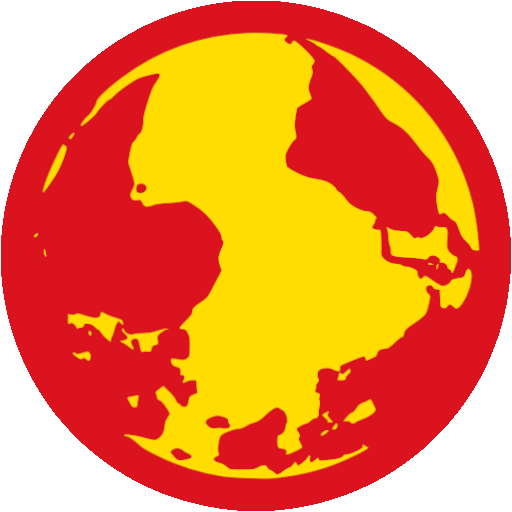 9·9 days ago
9·9 days agoDid you mean stealing everything in Ukraine?

 7·28 days ago
7·28 days agoAwesome story!

 7·28 days ago
7·28 days agoDuke / King of Wu are the same person in the story.
King of Wu had an opportunity to kill king of Yue but instead chose to be merciful and it ended badly for him, now king of Yue has an opportunity to kill king of Wu so he should take it or else it he might repeat king of Wu fate.

 1·1 month ago
1·1 month agoFrom what I know, it’s rediculous disinformation to try and make the connection between regime-change NGOs and students.
Diana writes the protest leader “learned organizing skills in numerous programs and workshops funded by Western foundations” and both his parents are prominent NGO leaders so it does sound like he was groomed and educated to become a regime change actor, you don’t get a more direct connection than that…
Reminds me a bit of how it turned out Joshua Wong took part in some “leadership development course” organised by NED, read regime change training, before orgnising the protests.

 6·1 month ago
6·1 month agoJust happens to be the same person who insisted on calling Ukraine “Nazikraine”, claimed Ukraine never existed and isn’t a nation, and that Nazism is the core of Ukrainian national identity. What a coincidence.

 4·1 month ago
4·1 month agoThank you! I’m planning a trip there so wondered how disruptive the protests are cause going with a small child.

 2·1 month ago
2·1 month agoThank you! Could you comment on this article?
https://consortiumnews.com/2025/05/27/diana-johnstone-serbias-organized-chaos/

 6·1 month ago
6·1 month agoHonestly I was just thinking exactly the same thing. They will make it unliveable for people and blame it on Russia, and then make them chose, “so do you want peace or welfare? Cause you can’t have both” and we’ll watch the support for the war skyrocket cause Brits are so used to leaching off other countries they believe it’s their manifest destiny.
 8·1 month ago
8·1 month agoI’m quite… uh… there’s must be a term in English.
“Liberal”
I’m too skeptical of ideas, to the point of knowing what the parties say, but not taking a stance.
In 300 years, people might look at us like we look at the “rationalists vs empiricists” debate or something like that. Just primitive frameworks
We live so shortly, we know so little… I guess that’s where I’m coming. Like I’m not taking a firm stance on the theoretical because I honestly believe we are in a very difficult position, with little knowledge and little possibility of action.
So cool, so detached, and yet so wise.
I believe that there’s like a theoretical field that should be open to speculation and investigation
I believe GC people should respect pronouns and stuff because that’s just being respectful. It’s no different to someone asking a change in nicknames (…) And not in a patronizing way
And I would expect the same from other sides
I understand the frustration that the trans community must feel (towards) GC. And probably GC feel the same
At the end of the day, we do not have the final answer, so trying to get solutions that serve us all should be our aim.
I don’t have it in me to comment beside: free marketplace of ideas, enlightened centrism, tone policing, both sideism.
Calling for GC people to treat trans identities like nicknames but not in a patronising way takes the cake.
And I do not see a problem in questioning these things because I do not think these questions should translate to how we treat people.
That’s great for you! Of course these questions do translate to how trans people are treated but you don’t think they should so that’s ok.
In this case, I believe gender-based rights and words can exist alongside sex-based rights and different opinions. The major obstacle is not ideological but monetary, material. How can we have an AFAB-only club and a women-only club at the same time if capitalism is making it difficult to have even a single club?
Yeah the condition of trans people in the UK is totally caused by scarcity. Damn you capitalism, if not for you we’d have clubs for everyone! Unfortunately, under capitalism we barely have enough for cis people so… Sorry trans folks.
In Spanish people from all sides would call me «tibia» (warm, not quite cold and not quite warm). It’s an insult.
I should hope so
As for the GC points, I do not know if I’m the correct person to try to explain it further, but I’ll try in another comment.
No I’m fine, thanks.
 6·1 month ago
6·1 month agoThank you for correcting me, I thought gender critical and TERF are the same thing.I’m struggling to understand some points though.
They believe that human brains are unisex, all brains. Therefore, for them, genders are just mumbojumbo (hence the name: critical of gender, of the idea of them even existing outside our imagination and conviction).
I’m sorry, I don’t get this. I thought gender is a social construct which by definition doesn’t exist outside human imagination and conviction… Also I haven’t heard e.g. trans women saying “I am a woman because I have a female brain”, I’m not sure what that would even mean.
What’s the difference between saying “there’s no such thing as gender, there’s only sex” and “gender is the same thing as sex”?
I believe you can doubt someone’s gender is ontologically important, without disrespecting their personhood, their f+$ humanity.
I think knowing the harm misgendering does, the pain of not being able to live as yourself reported by so many trans people, the violence they are willing to risk and the constant struggle they have to go through… I think knowing all that and still “doubting someone’s gender is important” is disrespecting their personhood and humanity.
(Edit) Wait the more I read your comment the less I understand. The quote below is shortened for readability:
They are not against “men” expressing their identities even if outside current societal expectations, but they would still be “men” with no right to claim the “women” spaces. To them, sexes should dictate divisions such as bathrooms or sports (some of them are okay with regular sex-based divisions).
OK so that’s blatant transphobia. Transphobes nowadays are generally not calling to murder all trans people, they “only” deny their validity, deny them access to gendered spaces, and so on.
If we are to fight transphobia, we also need to understand what is gender-critical feminism and what is transphobic rhetoric disguised as feminism or activism.
I am not in favor of banning real GC debates in universities. But transphobia? Get out of here.
From your description, gender-critical feminism is transphobic rhetoric disguised as feminism. I’m getting an impression you’re not a comrade.
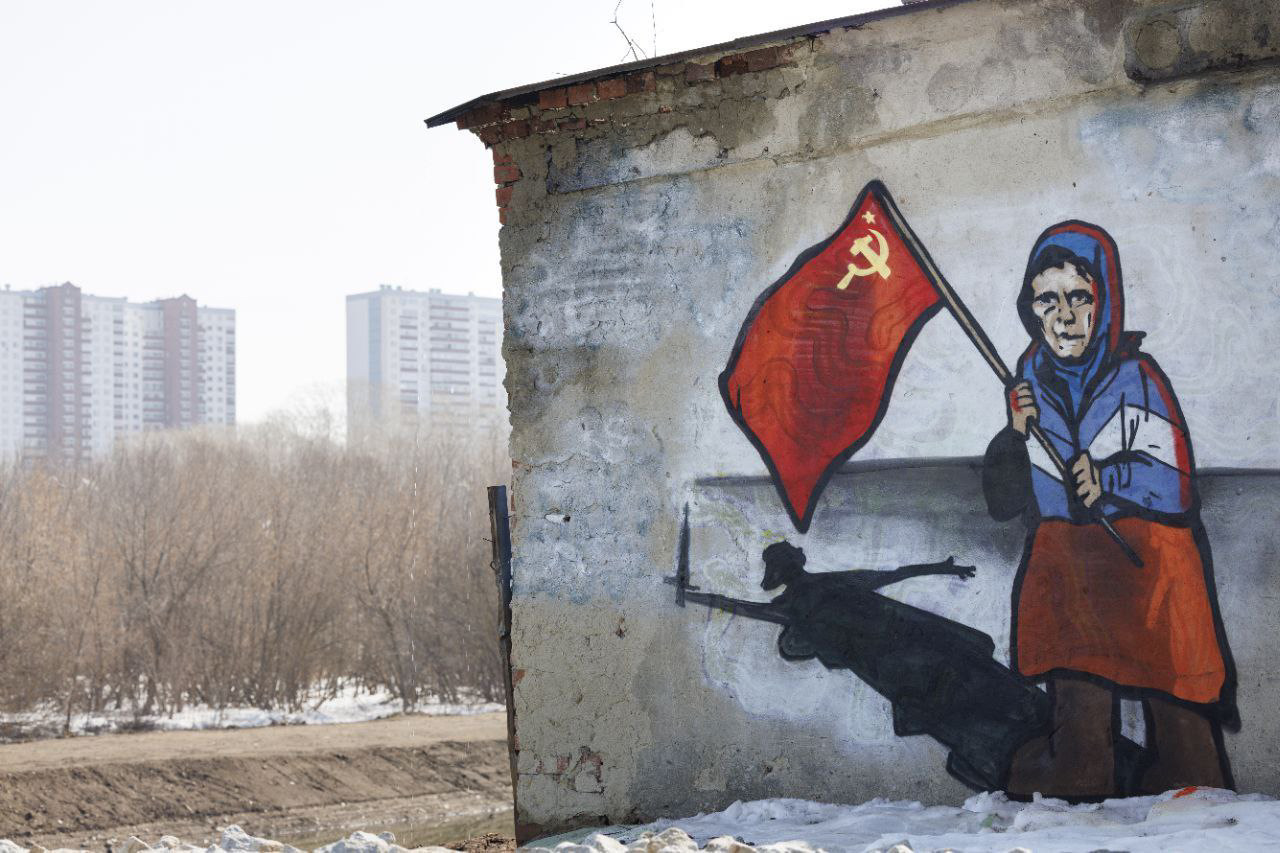


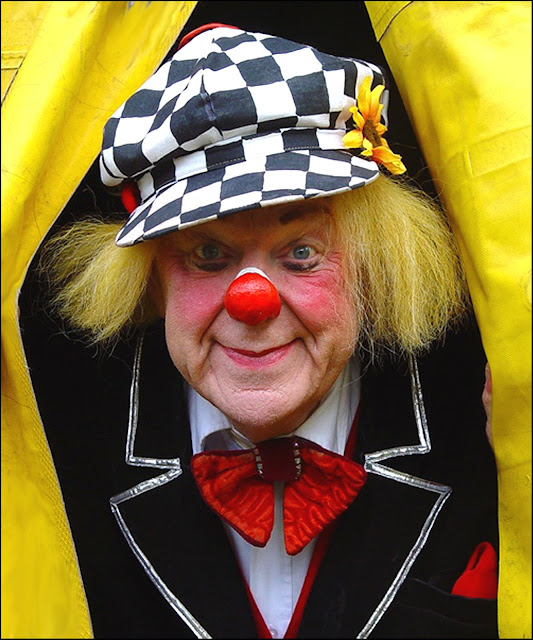
The EU is the culprit.